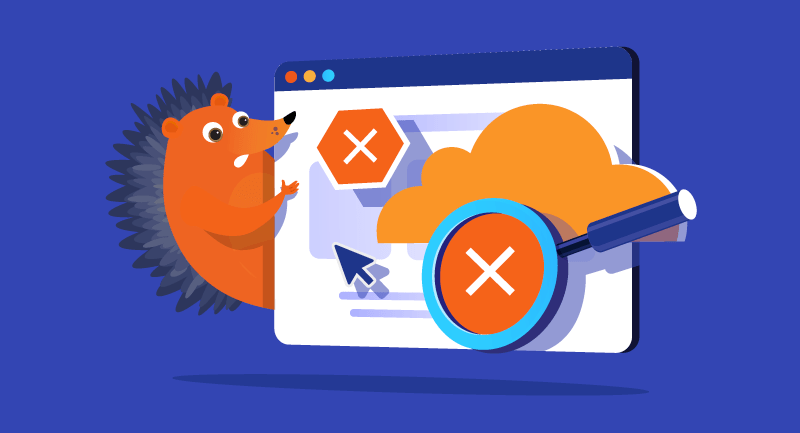Using .wiki domains to power collaborative communities
The Internet was always meant to be a place where people come together to share ideas, build things, and create something bigger than themselves. Some corners of the web have truly embraced this spirit, especially wikis. They’re collaborative by nature, growing stronger with each additional contribution.
And now, with .wiki domains, it’s easier than ever to create spaces that are purpose-built for communities who learn, share, and build knowledge together.
In this article, we’ll explore how .wiki domains create online spaces where collaboration thrives, like educational projects, niche knowledge hubs, or local community resources.
Why .wiki?
If you see a website ending in .wiki, you know what it’s about right away. It’s not just a blog or a storefront, it’s a living, evolving place where people can pitch in and contribute. That’s the power of a domain that tells your story before anyone even clicks.
Unlike traditional websites, where a single voice usually leads the conversation, wikis open the door to collaborative editing. Anyone can join in. Everyone can shape the content. It’s like having a community notice board that’s always up to date.
But why choose .wiki instead of a more familiar domain like .com? Because .wiki immediately signals that your site is a space where people can co-create. It tells visitors, ‘This isn’t just my space; it could be yours too.’
New domain extensions are opening up new possibilities
For a long time, most websites lived on .com, .org, or maybe .net if you were feeling adventurous. But the internet has grown. People are now embracing new domain endings that feel more specific, more personal, and more creative.
The adoption of new top-level domains (like .wiki) is steadily increasing because they offer:
- More availability: You’re not stuck with clunky, hard-to-remember names.
- Clearer messaging: Your domain extension becomes part of your brand story.
- Niche appeal: You can target smaller, tighter communities more effectively.
People are realizing that a domain ending doesn’t just have to be an address — it can say something meaningful about what your site does. A domain like fermentation.wiki isn’t just a website, it’s a gathering place for people passionate about homemade sourdough, kombucha, and pickles.
Why community builders love .wiki
At its core, .wiki is about empowering people to build things together. It’s perfect for communities where everyone’s voice matters.
Here’s why it works so well:
- It’s instantly understandable. When someone sees a .wiki domain, they already know what to expect: shared knowledge, open collaboration, and the chance to contribute. There’s no confusion. It sets the tone from the start.
- It’s built for participation. The beauty of wikis is that they evolve over time. Visitors can become contributors. Experts can teach, and learners can grow. Whether you’re creating a study hub, a professional knowledge base, or a local resource, a .wiki domain invites people in.
- It builds trust. A .wiki site feels more community-focused and less like a corporate sales pitch. It’s about sharing, not selling. That can build trust quickly, especially in niche spaces where authenticity matters.
Why .wiki stands out
While there are lots of great domain options out there, .wiki has something special: it invites people to participate. It lets them know that this is a space where they belong and can help to build something special.
Plus, it’s:
- Easy to remember
- Simple to connect with wiki software
- Great for building trust in niche spaces
And even better? The domain isn’t oversaturated. You have a much better chance of snagging your perfect name.

Building your own wiki community
Starting your wiki might sound complicated, but it’s actually quite simple, especially with tools that make it easy to get started.
Here’s a quick path to launching your .wiki site:
- Grab your domain. Pop on over to our .wiki page, search for your perfect .wiki name, and register it.
- Set up hosting. Wiki software, such as MediaWiki or BookStack, can be easily installed on various hosting platforms. But to focus on affordable hosting, registrars also offer strong payment plans with strong hosting service.
- Design for collaboration. Keep things simple, make it easy to edit, and encourage contributions from day one.
- Invite your community. Reach out to your niche, whether that’s local friends, online hobbyists, or professional peers. People love to join projects where their contributions matter.
- Celebrate contributors. Give shout-outs to people who participate. Leaderboards, community spotlights, or even a simple thank-you can go a long way.
Quick tips for running a great Wiki
- Lower the barrier to entry. Let people contribute without complicated signups.
- Encourage editing. Make it clear that mistakes can be fixed (perfection isn’t required).
- Keep things organized. Utilize categories, templates, and straightforward navigation to prevent chaos.
- Build momentum. Post regular updates, highlight new contributions, and keep your community engaged.
- Invest in online security (like free domain privacy) and other site boosting tools; a domain is only as powerful as the site it’s running.
As you can see, .wiki domains are more than just a web address. They create spaces where people can share what they know, build on each other’s ideas, and keep growing together.
Whether starting a study hub, a niche knowledge base, or a local community project a .wiki domain can help you make it clear that this is a place for everyone, not just the site owner.
Get a .wiki today
With so many untapped names still available, now’s the perfect time to register your .wiki. If you’re ready to bring your collaborative vision to life, then Namecheap’s the perfect place to start.





